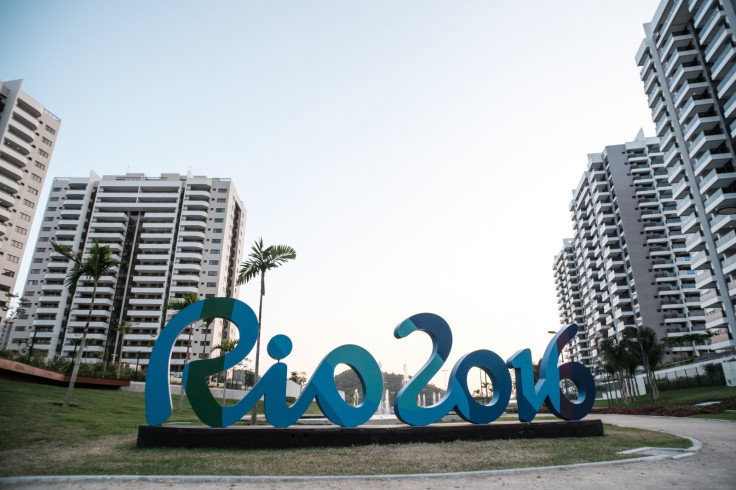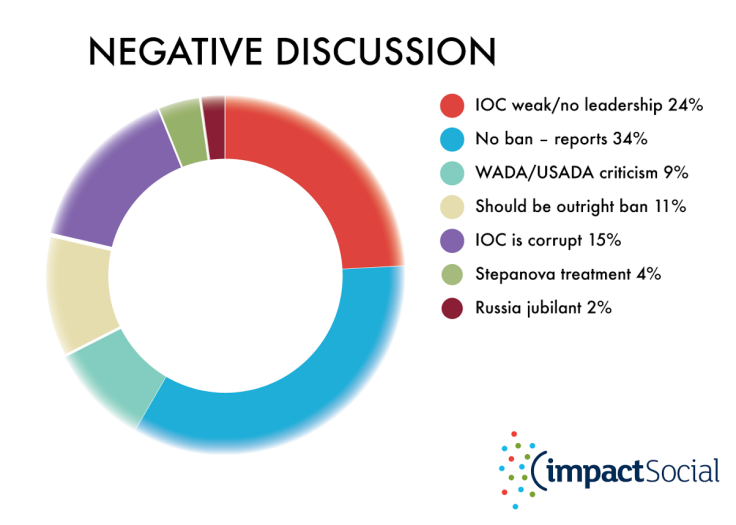The Olympics has survived this Russian doping scandal by passing the buck
There's only one Olympics and the IOC are the only body to provide it.
The International Olympics Committee's decision not to issue an outright ban on Russia's athletes in the face of overwhelming evidence of state-sponsored drug-abuse, was cowardly and flew in the face of the Olympic ideal. We all know that.
It threatens the integrity of sport. We know that too. It ought to be an existential threat to the Olympics, a breach of the trust between athlete and spectator. But, deep down, we don't really care enough, and we'll let this one slide. The IOC know that, and even as they face the biggest reputational crisis in their history, they know they'll get away with it.
It shouldn't be like that, of course. The Olympics is the biggest, most idealistic of all sports competition, with a scale, history and heritage unrivalled in human history. For the Olympics to 'work' we need to believe in level playing fields, that the same rules apply to all, not that some are running 90m to the 100m of others. Surely, breaking that fundamental rule of sport would be shaming on a ... well... Olympian scale.
And while we're cross about this, writing-a-letter-to-the-newspaper cross, furrowed brows and angry paragraphs are pretty much as far as this will go.
An analysis of 80,000 posts on Twitter over the world during the last seven days by the social media analysis company Impact Social shows an overwhelmingly glum tone – 68% were negative, and only 3% thought the IOC had made a good decision (the remaining 29% simply tweeted the news, so let's not judge their motivation).

Amongst those negative tweets, almost a quarter accused the IOC of weak leadership, a further 15% alleged that the organisation is corrupt and 9% pointed to the hefty criticisms emerging from the anti-doping agencies WADA and USADA. Others talked of the need for an outright ban for Russian athletes (11%) and others, 4%, talked of the shoddy treatment of the whistleblower Yuriya Stepanova.

What's striking about the online sentiment is not what people globally are saying, but what they are not saying. No one, it seems, is losing faith in the Games themselves. There is little suggestion that the decision has ruined Rio 2016, that they won't be watching, they will walk away. It seems corruption in any form has already been priced in. Spectators (and sponsors) will continue to tune in, the Olympics are safe and while the IOC is clearly damaged, their gamble, for now, is paying off.
This decision has been a triumph of brinksmanship. Had they issued a ban so close to the event itself, the lawyers and the sponsors could have caused chaos. By leaving the decision to the individual sports bodies, they have passed the buck without giving them time to catch it. Those sports governing bodies are far from unified in their approach, and, track and field aside, almost all will simply wave the Russians through, with only different degrees of reluctance to separate them. The IOC can say 'not our fault', while the governing bodies will echo that back and point fingers too. And the Russians will line up with everyone else when the time comes.
Sport is bigger than its biggest stars
Sports bodies will holler, but some won't get too loud (and don't forget that The Sunday Times has claimed a number of rather murky goings on with British sports people, some of them allegedly Olympians). The Olympics will survive as all sport survives – by finding and shaming scapegoats, then moving on as before.
Just as the Olympics have previously survived the state-sponsored drug abuse of the East Germans and the Chinese, by pointing the finger at the perpetrators, rather than taking responsibility for them. Just like golf has survived the traumas of Tiger Woods, cycling survived Lance Armstrong, and football survived Sepp Blatter, the events we watch will survive the blunders of those who provide them.
There is no break between spectators and sport that the ineptitude of the governors has brought about because we suspended belief in these things long ago. We've not really bought the hokum around the Olympics since they allowed professional tennis, golf, football and the rest in. The halo of the amateur has long gone – the Olympics is a show, not an ideal anymore, but so as long as our TV screens are filled with an approximation of genuine competition, then the IOC will continue to run things in their arcane, politically complex and utterly inept manner. They have to – there's only one Olympics and they're the only body to provide it. While we still have an appetite for sport, we'll put up with almost anything from those who provide it.
© Copyright IBTimes 2025. All rights reserved.





















